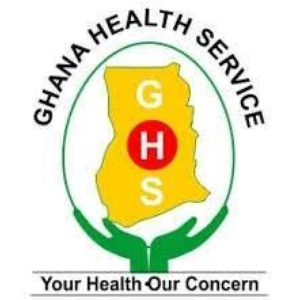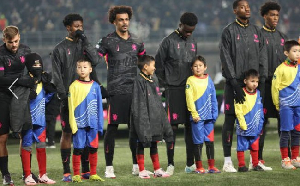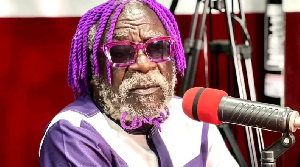


Nanisto News Blog of Saturday, 14 December 2024
Source: Manteaw Amos
Land grabbing allegations at Ghana Health Service headquarters: Staff demand urgent action

The Ghana Health Service (GHS) Headquarters at Tema Station is at the center of a brewing controversy, as staff and stakeholders raise alarm over alleged attempts to unlawfully sell off the property to private developers.
According to insiders, top officials including directors of the GHS are accused of colluding with officials of the outgoing government to execute the sale under questionable circumstances.
The issue first surfaced earlier this year when reports emerged about the sale of the GHS Headquarters.
Since then, tensions have escalated, with staff alleging relentless pressure to vacate the premises and relocate to the Pantang Isolation Center—a facility originally funded by the World Bank to handle infectious diseases like COVID-19.
Senior staff, including directors and deputy directors, have consistently resisted the relocation, describing it as part of a broader illegal agenda.
However, the situation has worsened following the December 7th general elections and the declaration of His Excellency John Dramani Mahama as President-elect.
From Monday, staff report an intensification of pressure, with directives issued for the entire workforce to vacate their offices by the end of next week.
Sources reveal that the headquarters building is scheduled for demolition to pave the way for a private developer who now claims ownership of the property.
Concerns from Staff and Stakeholders
The alleged land-grabbing scheme has sparked outrage, with staff accusing the top leadership of the GHS and collaborators of betraying public trust and undermining the integrity of the Service.
In a statement released by concerned staff and stakeholders, they decried the actions as "reckless" and an affront to the welfare of employees and the operational needs of the GHS.
“This is not just a land issue—it’s about the future of the Ghana Health Service and the integrity of public institutions. The Pantang facility was specifically built to manage infectious diseases, not as an administrative headquarters,” the statement noted.
Concerns have also been raised by development partners, including the World Health Organization (WHO), UNICEF, USAID, and the World Bank, which funded the Pantang facility as part of efforts to strengthen Ghana's capacity to manage infectious diseases.
Call for Urgent Intervention
The staff are urging the Joint Transition Team and relevant authorities to immediately step in and halt the alleged land-grabbing scheme.
They demand that all those involved be held accountable for their actions.
“If these unlawful activities are not stopped, it will set a dangerous precedent that endangers not only the Ghana Health Service but other public institutions as well,” the statement warned.
Staff have also vowed to resist any attempts to demolish the building and hand over the land to private developers. “We will not be silenced, intimidated, or coerced into surrendering what rightfully belongs to the Ghana Health Service and the people of Ghana,” they declared.
Implications for Public Trust
This controversy has significant implications for public trust in Ghana's health sector, particularly as the country continues to recover from the impacts of the COVID-19 pandemic. Observers fear that unchecked actions of this nature could erode confidence in public institutions and jeopardize the delivery of critical health services.
As the deadline for the evacuation of staff looms, all eyes are on the government and the Joint Transition Team to address the matter with urgency.
The outcome will not only determine the future of the GHS Headquarters but also send a strong message about accountability and the protection of public assets in Ghana.






![Asiedu Nketiah [L] and Faustina Andoh Kwofie Asiedu Nketiah [L] and Faustina Andoh Kwofie](https://cdn.ghanaweb.com/imagelib/pics/769/76978212.295.jpg)











